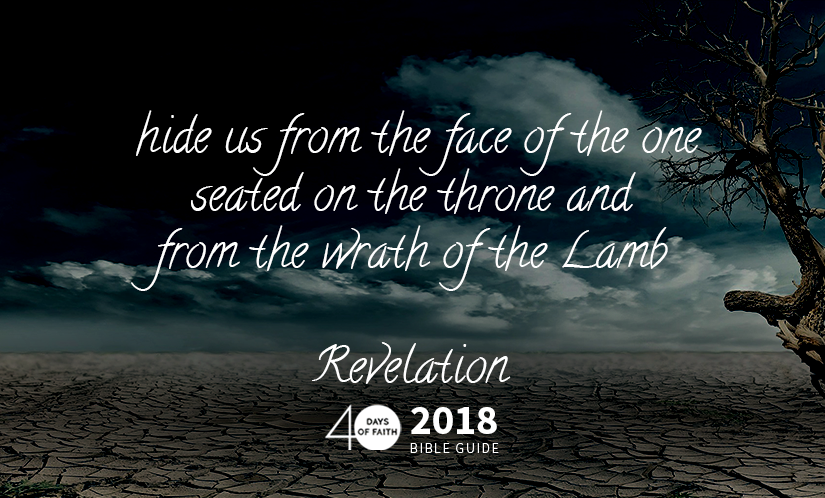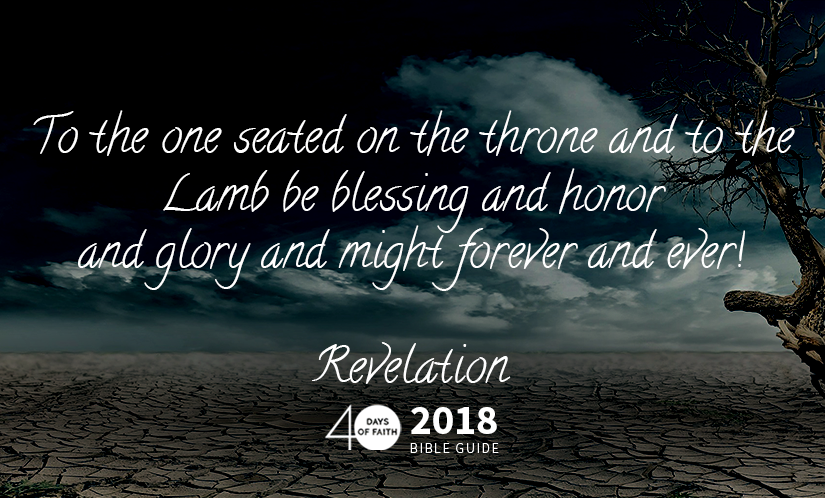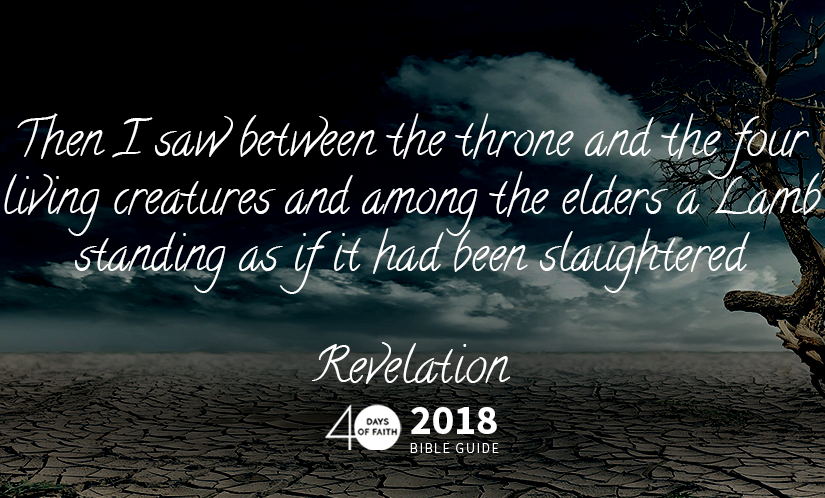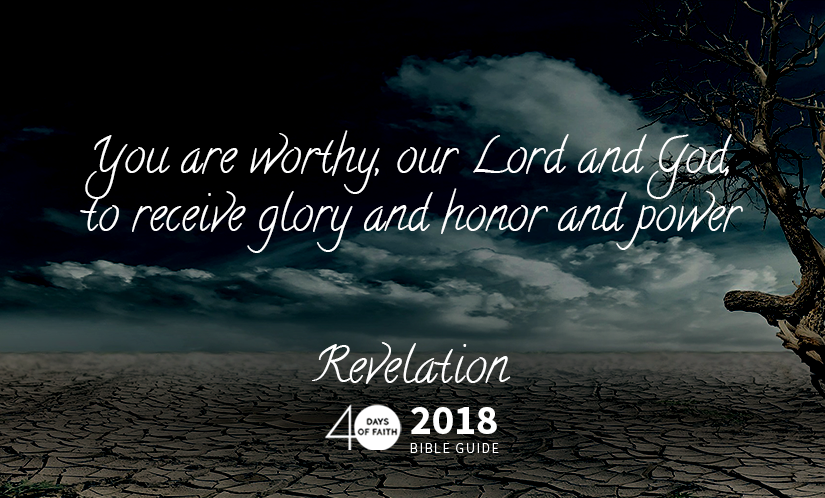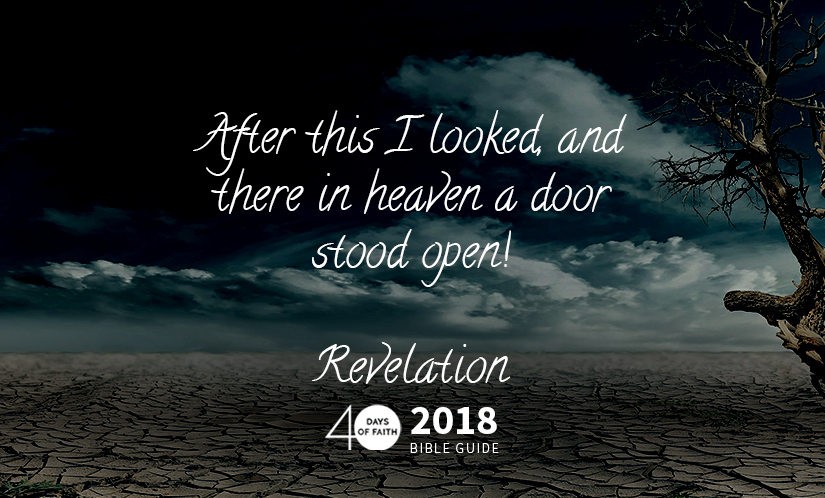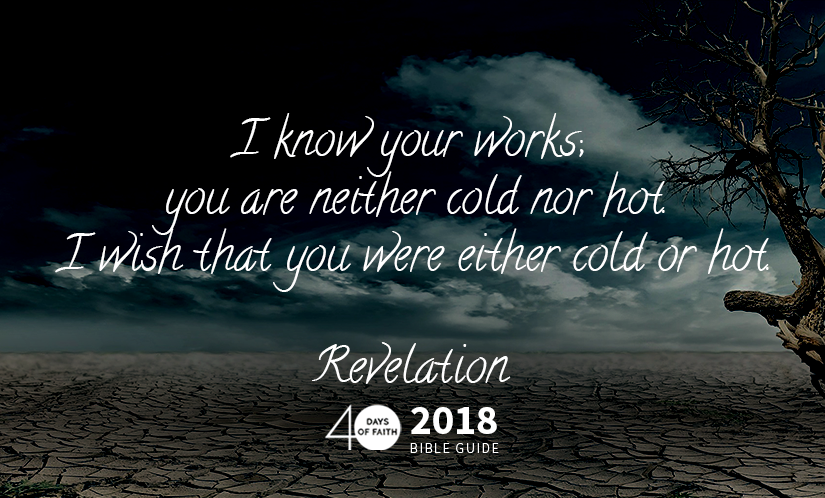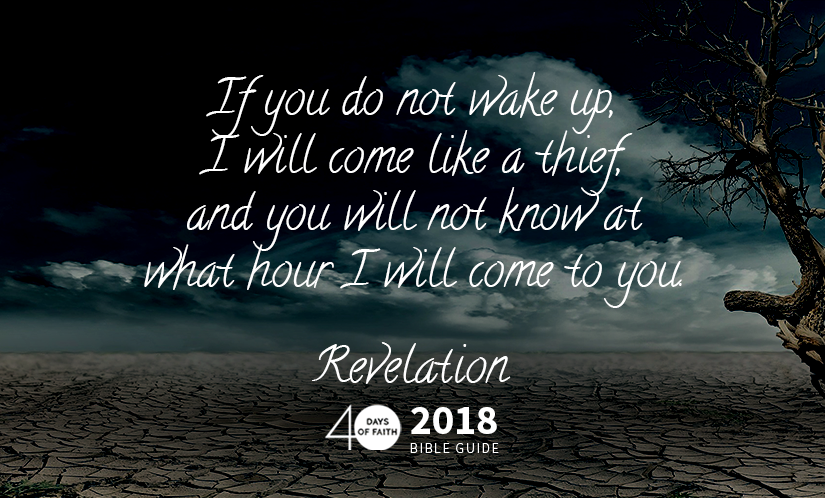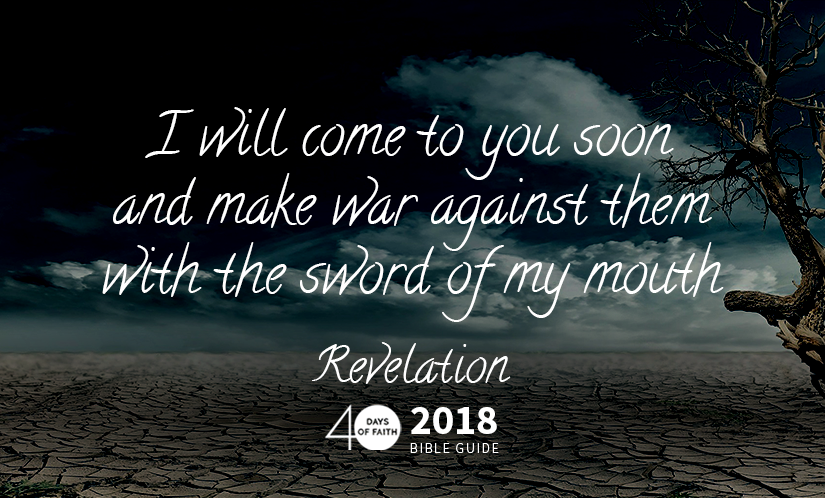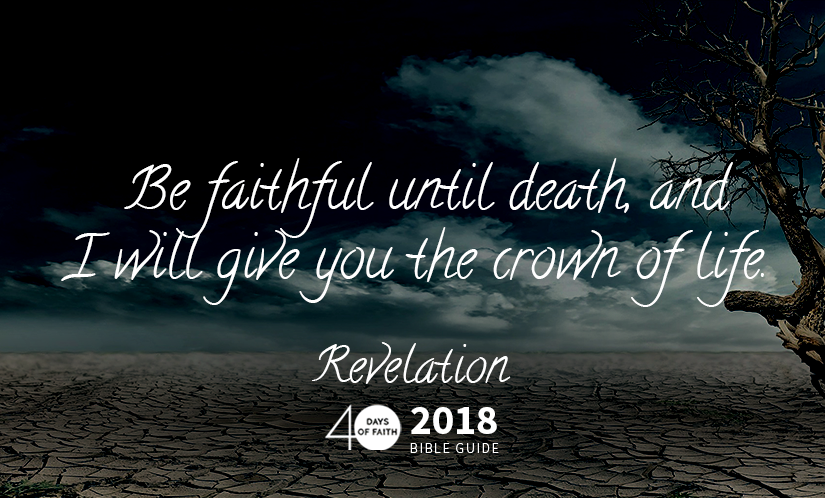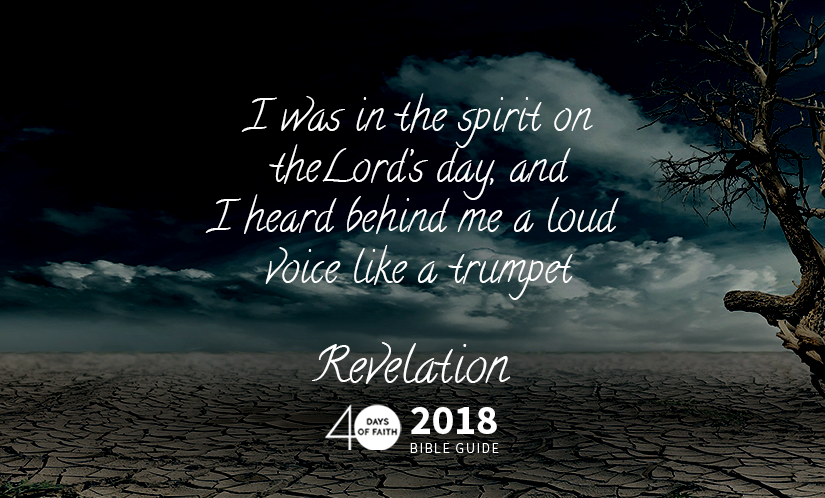Previously in Revelation
And the four living creatures said, “Amen!” And the elders fell down and worshiped.
Day 11
Revelation 6:1-17
Then I saw the Lamb open one of the seven seals, and I heard one of the four living creatures call out, as with a voice of thunder, “Come!” 2I looked, and there was a white horse! Its rider had a bow; a crown was given to him, and he came out conquering and to conquer.
3When he opened the second seal, I heard the second living creature call out, “Come!” 4And out came another horse, bright red; its rider was permitted to take peace from the earth, so that people would slaughter one another; and he was given a great sword.
5When he opened the third seal, I heard the third living creature call out, “Come!” I looked, and there was a black horse! Its rider held a pair of scales in his hand, 6and I heard what seemed to be a voice in the midst of the four living creatures saying, “A quart of wheat for a day’s pay, and three quarts of barley for a day’s pay, but do not damage the olive oil and the wine!”
7When he opened the fourth seal, I heard the voice of the fourth living creature call out, “Come!” 8I looked and there was a pale green horse! Its rider’s name was Death, and Hades followed with him; they were given authority over a fourth of the earth, to kill with sword, famine, and pestilence, and by the wild animals of the earth.
9When he opened the fifth seal, I saw under the altar the souls of those who had been slaughtered for the word of God and for the testimony they had given; 10they cried out with a loud voice, “Sovereign Lord, holy and true, how long will it be before you judge and avenge our blood on the inhabitants of the earth?” 11They were each given a white robe and told to rest a little longer, until the number would be complete both of their fellow servants and of their brothers and sisters, who were soon to be killed as they themselves had been killed.
12When he opened the sixth seal, I looked, and there came a great earthquake; the sun became black as sackcloth, the full moon became like blood, 13and the stars of the sky fell to the earth as the fig tree drops its winter fruit when shaken by a gale. 14The sky vanished like a scroll rolling itself up, and every mountain and island was removed from its place. 15Then the kings of the earth and the magnates and the generals and the rich and the powerful, and everyone, slave and free, hid in the caves and among the rocks of the mountains, 16calling to the mountains and rocks, “Fall on us and hide us from the face of the one seated on the throne and from the wrath of the Lamb; 17for the great day of their wrath has come, and who is able to stand?”
Points of Interest
- “seven seals” – In Ch. 5, Jesus the Lamb arrived to open a scroll with seven seals, with a version of human history from God’s perspective, through a kaleidoscopic lens of symbolic imagery.
- “white horse” – Evoking the crazy history of Revelation’s interpretation, the seals begin with the famous “four horsemen of the apocalypse.” Each represents some of the worst trials of human history – military invasion, death in war, economic injustice, famine, disease. Unlike the Lamb, the horses are aggressive & violent. They don’t suffer for others’ good, but slaughter & cause suffering.
- “its rider was permitted” – While these horses and riders are not from God or of God, they are permitted by God. I think John means this to be comforting – that even the worst collective human evil is still under God’s control. Yet it is disturbing as well. While Revelation promises God’s victory and our victory over evil, it doesn’t try to answer why God doesn’t insist on a history without violence and suffering. Perhaps the image of Jesus knocking is helpful here – God will gently intervene in history but not crush our will and micromanage. Perhaps we can remember the slaughtered Lamb as well – that Jesus interrupts human violence by becoming a conquering victim, suffering with us now and promising a future age without violence and suffering.
- “Sovereign Lord” – The first century and all of history also includes the unjust suffering of people who refuse to respect corrupt human authorities but pledge their allegiance to God instead.
- “How long” – Human victims utter the age-old question that is stated twenty times in the Hebrew prayer book of the psalms.
- “white robe” – Seems odd at first that the innocent victims of history are given a lousy bathrobe and told to wait around. The white robe, though, is an answer to part of the “how long” question. It symbolizes victory. Unjust suffering is always temporary. God will vindicate.
- “a great earthquake” – The cataclysm of the sixth seal is typical symbolic biblical language for massive societal and political upheaval. This too is occasionally part of history.
- “the wrath of the Lamb” – This is an unexpected, ironic phrase. Overpowering anger isn’t the first thing we’d expect from a gentle, slaughtered lamb! Many theologians – particularly from Eastern traditions – point out that anytime God is personified, there is symbolism at work. Here, the symbol would be for the consequences of human evil. God doesn’t magically wipe out the enormous suffering that comes with personal and collective human violence. God allows the fearsome consequences captured in this chapter, leading John to ask, “How can we endure?” We’ll come back to that tomorrow.
Spiritual Exercise
In the midst of Revelation’s drama, we see this week our third of seven scenes of worship. These remind us that in the drama of our times, we can still find solidarity with one another and connect with a good God who listens to us through worship. Each day this week, you’re invited to withdraw from the stress and urgency of daily life and reflect on God’s power and goodness. Today, consider that in all of the very worst evil and suffering in the human story, both present and past, God is still alive, still good, and still promises victory and redemption. Let God know you know that is true, or that you hope that is true, or even that you want to hope that is true.
A Direction for Prayer
Pray for each of your six by name, that wherever they are asking “How long?” they will experience hope, faith, and courage.
The Bible Guide
This blog post is part of a Lenten journey through the book of Revelation. Every year during the season of Lent, we take a focused look at a portion of Scripture as part of our communal spiritual practice. This year, we are exploring what it means to be Children of God in a Fractured World, with Revelation as our lens. The series starts here.


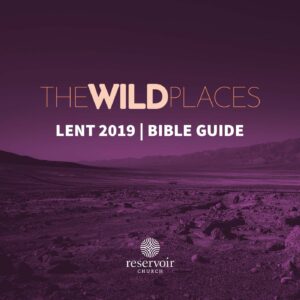 Each day, you’ll hear an excerpt from Revelation, followed by observations, comments and suggestions for prayer and response. The Daily Bible Guide is part of 40 Days of Faith at Reservoir Church — our take on Lent. Each year during Lent, we make space to intentionally read scripture in community.
Each day, you’ll hear an excerpt from Revelation, followed by observations, comments and suggestions for prayer and response. The Daily Bible Guide is part of 40 Days of Faith at Reservoir Church — our take on Lent. Each year during Lent, we make space to intentionally read scripture in community.